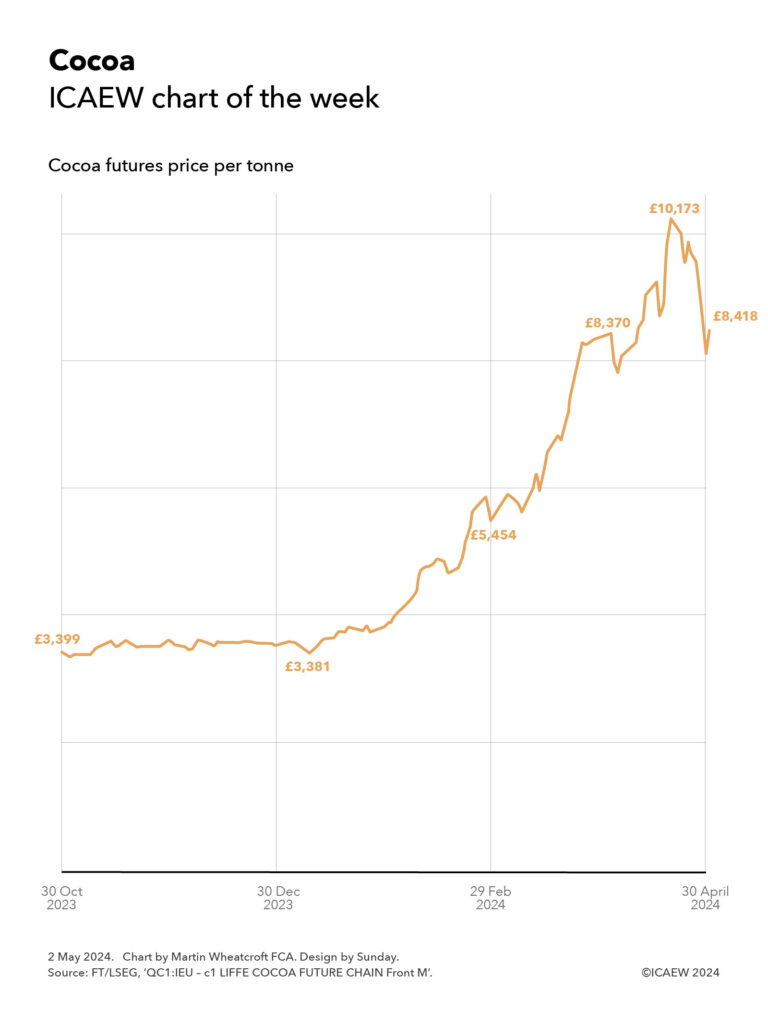My chart for ICAEW this week looks at the price of cocoa, which has been popping as shifting weather patterns have caused harvests in Ghana and Côte d’Ivoire to collapse.

Developments in international commodity markets can often seem only distantly connected with everyday life, but for us chocolate lovers the quadrupling in the cocoa price since the beginning of last year is causing concern, not just about how much we will have to pay for our favourite sweet treat, but whether our next fix might be in jeopardy.
My chart this week skips over the just 65% increase in the one-month London cocoa futures price from £2,060 per metric ton at the end of 2022 to £3,399 at the end of October 2023 to focus on the last six months, during which the price has soared to record highs.
As the chart illustrates, the price had stabilised at around £3,400 to £3,600 per tonne between 30 October 2023 when the price was £3,399 per tonne, to 8 January 2024 when the price dipped to £3,381. The price has increased rapidly since then, up to £5,454 per tonne on 28 February, to £8,370 by 2 April before zigzagging up to a peak of £10,173 per tonne on 19 April. The price came down to £8,418 per tonne on 28 April 2024 (or just under £8.42 per kilogram) as buyers scaled back purchases in the light of lower spot prices, as well as concerns about the ability of suppliers to meet scheduled delivery commitments.
The rapid rise in prices has been driven by poor harvests in Ghana and Côte d’Ivoire, the two largest producers of cocoa as drier weather, hotter temperatures and shifts in rainfall patterns have all adversely impacted growing conditions. With poor harvests expected to continue and limited options for alternative supply in the near-term, global cocoa prices are unlikely to come back down any time soon.
This has of course fed into the cost of chocolate, with the UK media reporting that Easter eggs cost 50% more this year than in 2023, while our favourite chocolate treats are much more expensive than they were.
One consolation – at least for the Bank of England’s Monetary Policy Committee – is that chocolate constitutes less than 0.6% of the consumer price inflation index, meaning that even if chocolate inflation continues to accelerate, it shouldn’t stop the overall inflation level from coming back down to target in the coming months.